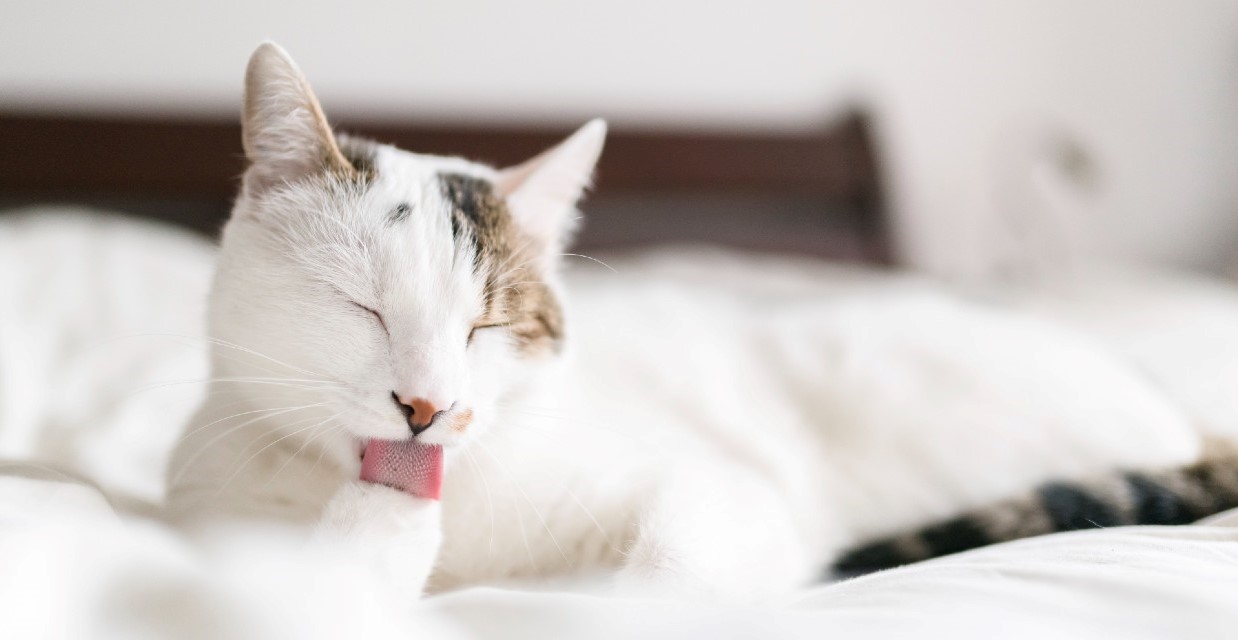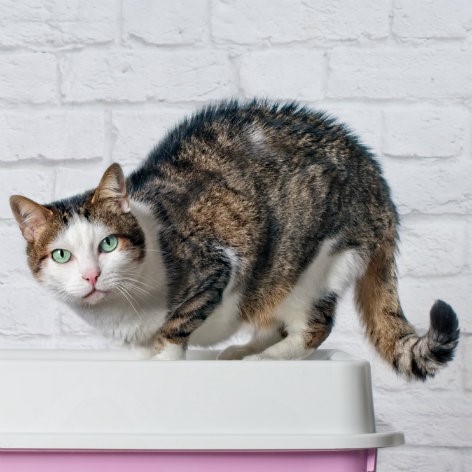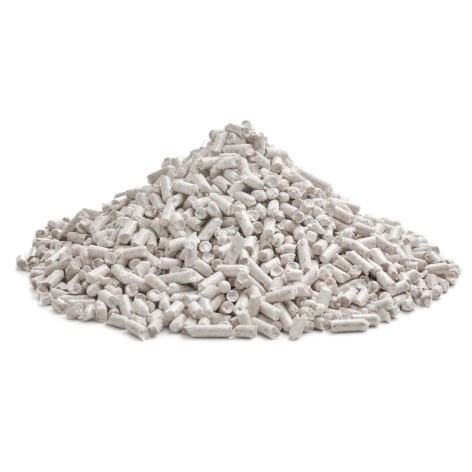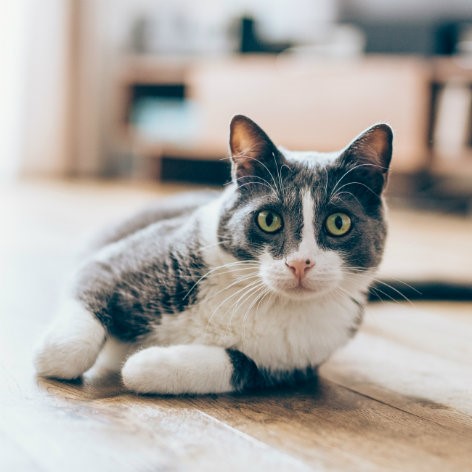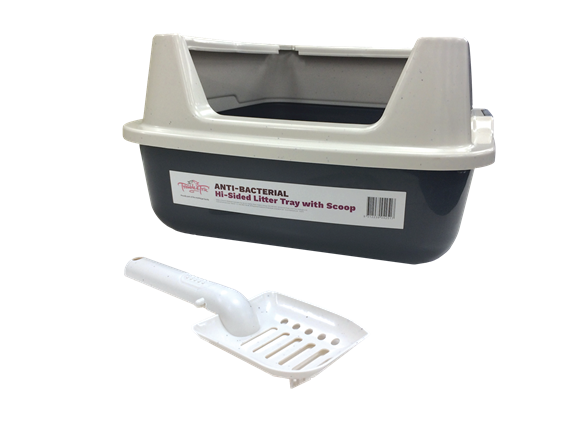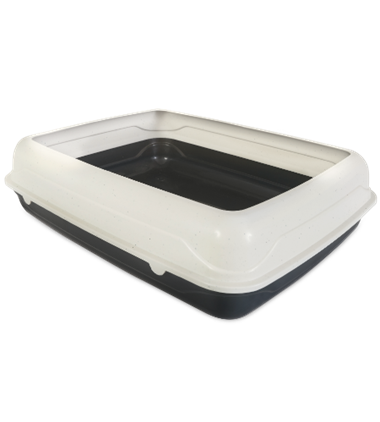Hairballs are unsightly and one of the least glamourous aspects of living with cats.
So why do some cats get hairballs, are they bad for their health and what can be done to treat and prevent them?
Why do Cats get Hairballs?
Hairballs are quite a common occurrence.
Cats get hairballs because they swallow their fur during the grooming process.
A cat’s tongue has tiny hooks along its surface which catch loose and dead hair as the cat licks and grooms itself. Although most of the swallowed hairs pass through the digestive tract without causing an issue, if the hair stays inside the stomach, it can cause a cat to vomit up a hairball as a means of removing the hair from the stomach.
Adult cats are much more prone to hairballs compared to kittens. This is because kittens are still learning how to properly groom themselves and their coat doesn’t shed as much. Adult cats are much more proficient at grooming, they are also larger and groom more frequently, so they tend to swallow more hair compared to kittens.
Hairballs are more common in long haired cats, such as domestic long haired, Maine Coons and Persians due to the increased amount of hair that’s swallowed during self-grooming. Hairballs are also more common in cats who groom excessively or those who tend to shed a lot.
Although in many cases hairballs are harmless, they can cause intestinal blockages in the worst cases.
How to Tell if your Cat has Hairballs
Other than the obvious sign of seeing your cat gagging, hacking or vomiting up a hairball or just finding one around the house, another sign that your cat is at risk of hairballs can be found in their poo. Examine your cat’s poo to see if there’s fur present. Some fur is normal from time to time however an excessive amount suggests your cat is swallowing a large amount of hair and is more prone to hairballs.
If you notice your cat is off their food, lethargic, is vomiting, has diarrhea or is constipated they may have a blockage in their digestive tract caused by a hairball and you should take them to see the vet immediately.
How to Minimise or Prevent Hairballs
There are several things you can do to help treat, minimise and prevent hairballs in your cat. These include:
- Grooming your cat regularly to remove loose or dead fur, especially when they are shedding. This helps to reduce the amount of hair they swallow when they groom and therefore can reduce the likelihood of hairballs.
- Administer a hairball product or laxative such as the Aristopet Cat Laxative Paste to help hairballs pass through your cat’s digestive system and prevent blockages.
- Provide your cat with some environmental enrichment including toys, food puzzle toys, elevated spaces and access to an outdoor cat run. Enrichment encourages physical and mental engagement and helps to prevent boredom and reduce stress and anxiety which can help to reduce excessive grooming.
- Feed a hairball specific food. Diets specifically formulated to address hairballs can help to keep the coat in good condition, promote the passing of hair through the digestive track and help to reduce hairballs.


